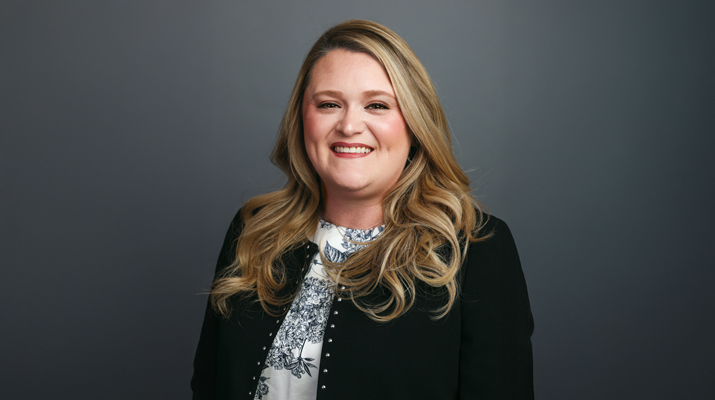From molehill to mountain
Whenever someone is perceived to exaggerate probability and consequences, they are accused of “making a mountain out of a molehill.” This catchphrase is usually applied when bean counters and actuaries point out the cost of addressing some problem that seems unlikely to occur.
 Jay Johnston |
When it comes to insurance, some larger propane companies are managing a financial formula that factors estimates on expected liability expenditures. For example, if you live with a $1 million deductible for each claim, odds are you will hire someone to manage and pay those claims. You forecast a budget, and after the year you get to keep any money left over.
Smaller marketers do not have such luxury. I have a client who does about 3 million gallons and has total insurance costs of 1.7 cents per gallon. His premiums would hardly pay for one case involving investigation of cause, depositions and costs of defense – even when his company made no contribution to the cause. Insurance agents are always calling him to quote, saying they can save him money.
Other propane marketers probably call on your customers to suggest the same thing. In the process of keeping a good customer, we all explain the pros and cons, benefits and features, savings and liabilities. A business mentor of mine used to call that process “putting things in their most attractive light.”
When it comes to safety, that same process exists. For the past two years, I have been warning about the apparent rust problems on more than quite a few sleeved exchange cylinders.
During this process, I have uncovered more than 40 pictures from all over the country that clearly show the problem. Numerous refillers have written me about receiving old sleeved leaking tanks with rust pinholes at the welds. I have inadvertently influenced major tank manufacturers to review their own sleeve policy on new tanks. I have been publicly accused of being “mistaken” by cylinder exchange and tank manufacturers who sell and/or put sleeves on refurbished tanks.
When I first addressed this issue, the concern was generated from numerous grassroots NPGA members who were frustrated with finding this problem in the field. If you read NPGA Reports, you will find such input from members is encouraged. I have found it all depends upon who has a stake in the process. If a large stakeholder doesn’t like a topic or issue because it impacts his business, he can influence such issues.
Imagine my surprise when I found that politics could kill such an issue before any discussion.
I’m sure you can understand my disappointment at being accused of manufacturing evidence. I was actually told by officious folks that my concerns would have more weight if I worked for a bigger company. To which I respond: If I worked for a bigger company, I would not be allowed to express those concerns publicly. And that is a sad commentary on safety, not to mention the less-than-democratic process.
While I have received quiet support, many marketers are nervous for me because I had the heart and courage to address an issue of safety concern amidst indifference and political influence. That’s safety in the real world. Never discount who you are and what you stand for in the public process.
Lastly, my concerns make the legal community nervous because (I am told) the issue has not yet caused a serious accident. However, we don’t actually know that because the folks who pay the defense costs on cylinder incidents with tank sleeves have yet to share their information.
They all feel I am making a mountain out of a molehill. But that is not true.
Had those in power allowed the subject to be discussed and addressed the concerns at hand, the issue may have been resolved. Problem discussed – problem solved. Instead, we are a year-and-a-half out with no progress.
Engagement in dialog is a powerful influence. It is only because sleeve proponents opened that door to defend and deny rather than address that the molehill has become a mountain.
In the late 1970s, there was a public allegation that Ford Motor Company executives and bean counters made the decision to not redesign or recall the Pinto, which allegedly had a safety defect in the gas-tank design. It was argued that Ford found it was cheaper to pay the claims than to fix the problem. The fact that there were only 27 death cases attributed to fire from the safety issue led Ford to believe this was making a mountain out of a molehill. Eventually this issue cost Ford millions in liability awards, recall costs and caused severe damage to its product reputation.
I have seen hundreds of rusted cylinders that were the direct result of a poor paint process, covered up by sleeves that obviously trap moisture. I continue to receive pictures of tanks and letters from refillers about such rusted tanks leaking at the welds. I am embarrassed for the industry every time I see a new picture. I am fearful for employees and consumers handling such tanks.
If you are a large company or an association influenced by such companies, the tank-sleeve issue looks like a molehill. If you are a refill employee or consumer left handling tanks with rust covered up by sleeves, the issue looks like a mountain in the making.
If you are a safety guy who cares about people, propane employees, consumers and the industry reputation, asking such questions and addressing such issues simply looks like the right thing to do.
We have evidence of the problem. Now let’s fix it.
Jay Johnston (www.thesafetyleader.com) is an insurance agent, business insurance coach and consultant, safety writer and inspirational speaker. Jay can be reached at Jay@thesafetyleader.com or 952-935-5350.
















